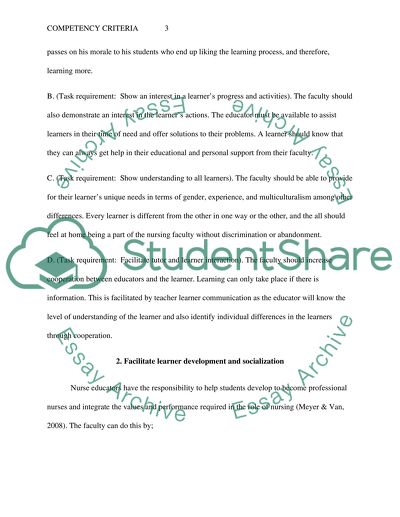Cite this document
(“Competency Criteria Essay Example | Topics and Well Written Essays - 1500 words”, n.d.)
Competency Criteria Essay Example | Topics and Well Written Essays - 1500 words. Retrieved from https://studentshare.org/nursing/1487583-competency-criteria
Competency Criteria Essay Example | Topics and Well Written Essays - 1500 words. Retrieved from https://studentshare.org/nursing/1487583-competency-criteria
(Competency Criteria Essay Example | Topics and Well Written Essays - 1500 Words)
Competency Criteria Essay Example | Topics and Well Written Essays - 1500 Words. https://studentshare.org/nursing/1487583-competency-criteria.
Competency Criteria Essay Example | Topics and Well Written Essays - 1500 Words. https://studentshare.org/nursing/1487583-competency-criteria.
“Competency Criteria Essay Example | Topics and Well Written Essays - 1500 Words”, n.d. https://studentshare.org/nursing/1487583-competency-criteria.


